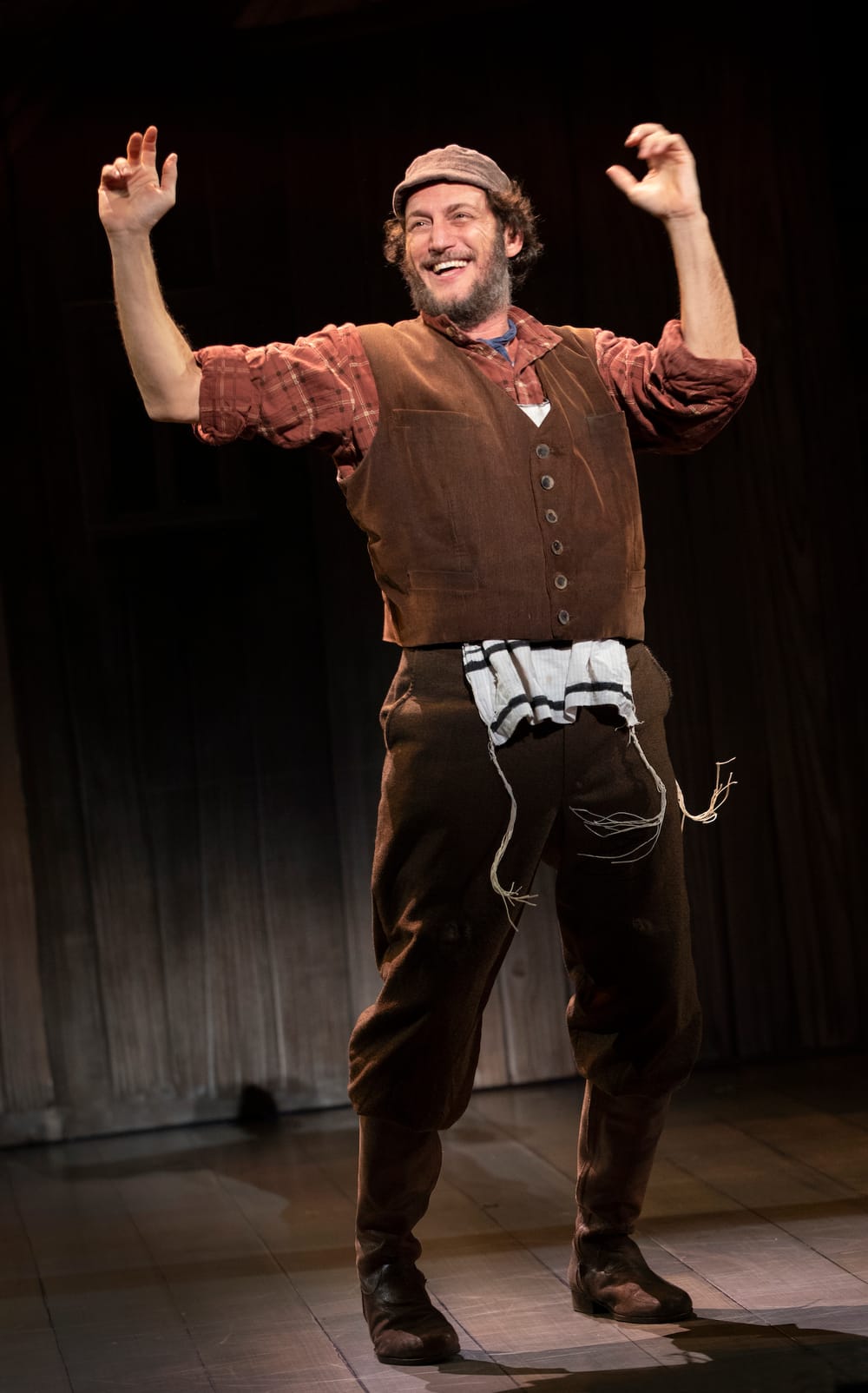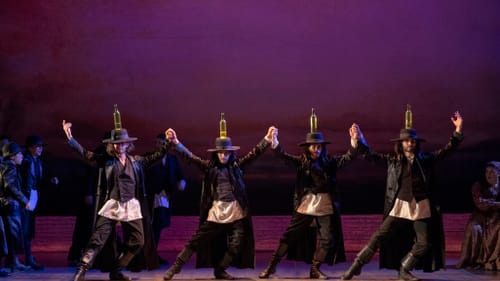Stay in the Loop
BSR publishes on a weekly schedule, with an email newsletter every Wednesday and Thursday morning. There’s no paywall, and subscribing is always free.
The fiddler's still up there
Broadway Philadelphia presents Fiddler on the Roof

Broadway Philadelphia’s Fiddler on the Roof opened this week at the Academy of Music after a Tony-nominated Broadway revival debuted three years ago. In that time, the number of anti-Semitic incidents in the United States has surged by 60 percent.
This revival opened before white supremacists took to the streets of Charlottesville, Virginia, torches in hands, chanting “Jews will not replace us!” and before a Jewish mom in Whitefish, Montana, became the target of death threats from neo-Nazi trolls.
For many Jewish Americans, the rise of such incidents shattered our belief that anti-Semitism was a thing of the past. With that backdrop of uncertainty and insecurity, Tony-winning director Bartlett Sher’s revival of Fiddler feels incredibly relevant, contemporary, and powerful.
Tevye the dairyman
For Fiddler fans, the character of Tevye the long-suffering dairyman (based on the stories of Sholem Aleichem) is synonymous with the larger-than-life performance of Zero Mostel, who debuted as the character in the show’s original 1964 Broadway production.
Philadelphia audiences viewing this national tour can experience a different kind of Tevye, brought to life by acclaimed Israeli actor Yehezkel Lazarov. Lazarov’s performance is emotional, nuanced, subtle, funny. His ongoing conversations with God aren’t shtick but bring us into their deep and complicated relationship.
I appreciated the melodic reverberation of listening to a Tevye with an Israeli accent. Lazarov’s success on an international stage offers a hopeful epilogue: though the characters in Fiddler must ultimately leave their home, here and now, Jewish culture continues to thrive in Israel and around the world.
Matchmaker
For many Fiddler fans, one of the joys of seeing this revival will be singing along (in your head) with the lyrics of the musical’s best-known songs “To Life (L’Chaim!),” “If I Were A Rich Man,” "Sunrise, Sunset,” "Matchmaker, Matchmaker,” and “Tradition.”
Under Sher’s direction, “Matchmaker” — sung by Tevye and Golde's (Maite Uzal) three eldest daughters, Tzeitel (Mel Weyn), Hodel (Ruthy Froch), and Chava (Natalie Powers) — is funny and sweet but also stark.
The song begins with Tzeitel, the first to be married off, burying her head in her sister’s lap, unable to face the prospect of what lies ahead. Later in the song, when she adopts the persona of Yente the Matchmaker and teases her sisters about the perfect matches for them, she sings, “You heard he has a temper / He'll beat you every night / But only when he's sober / So you'll be all right.”

The lyrics landed with a quieter chuckle than I expected and an almost communal gasp. Here we are, about 120 years after Tevye’s time, still trying to reckon with abuse and women’s equality.
Fiddler is also contemporary in its portrayal of the courage of Tevye’s daughters. Each young woman takes a step forward in breaking from a tradition that hasn’t — until the moment they challenge their papa — allowed for their voices to be heard.
Catharsis
Fiddler is beloved because of its brilliant balance of seriousness and humor, its melodies celebrating love, life, and loss. It was the first musical to play 3,000 performances on Broadway, and its touring productions introduced Jewish culture to corners of the country where audiences had never met an actual Jewish person.
This revival is choreographed by Israeli choreographer Hofesh Shechter, inspired by Jerome Robbins’s original choreography. The movement and energy of the dances feel both retro and new. One especially exciting number happens during “Tevye’s Dream,” in which the Underworld ensemble is costumed in surrealistic garb, complete with giant hands and long fingernails — creepy and fantastic.
On the evening I attended, the audience held the older generation (who have no doubt seen countless versions of the show), millennials, and i-generation kids watching for the very first time.
For many of us, the stories of our grandparents and great-grandparents surviving pogroms in Russia feels far away. But the power of this production resides in the way all its elements combine to make us care deeply about Tevye, his family, and their little shtetl, and to feel in our own kishkes the sense of fear and panic when they are told to leave Anatevka.
In the final scene, we watch Tevye’s family packing up and making plans to go to the United States. The older man sitting next to me actually said to his wife, “They’re going to be okay.” And yet, in this historic moment of watching refugees from around the world unable to find a haven, I left the theater feeling much less certain than he did.
What, When, Where
Fiddler on the Roof. Music by Jerry Bock, lyrics by Sheldon Harnick, book by Joseph Stein, choreography by Hofesh Schechter, Bartlett Sher directed. Based on the stories of Sholem Aleichem. Through October 28, 2018, at the Academy of Music, 240 S. Broad Street, Philadelphia. (215) 893-1999 or kimmelcenter.org.
Sign up for our newsletter
All of the week's new articles, all in one place. Sign up for the free weekly BSR newsletters, and don't miss a conversation.

 Gabrielle Kaplan-Mayer
Gabrielle Kaplan-Mayer